




 |
   |
 |
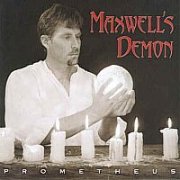 |
Prometheus (2001, 38.42) ****/TT½Prometheus |
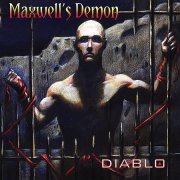 |
Diablo (2009, 53.58) ****/TTTT |
|
| Mirage Comedown Seduction Imbroglio I Celexa Deceptive Cadence Crash Imbroglio II Arzamas Revisited |
Breathe No Jesus Imbroglio III 225 Piece Jigsaw Old Tapes Mirage Immanent Avarice Atoned |
|
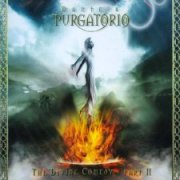 |
Dante's Purgatorio: The Divine Comedy, Part II (2009) **½/TT[Maxwell's Demon contribute]Avarice Atoned |
Current availability:
Mellotrons used:
Maxwell's Demon's debut album, Prometheus, is not for the faint-hearted; one thirty-eight-minute track, instrumental, angular, ever-changing... This is not an easy listen and is all the better for it. Of course, music like this generally has to be given time to sink in properly and a single listen absolutely does not suffice to review it properly, but, given time constraints, it's going to have to do for now. Anyway, the facts: Maxwell's Demon are a trio, Craig Beebe on keyboards, John Galbraith on guitars/bass/pedals/flute and what seems to be a rotating drum stool, so to speak; Dow Draper plays on the album.
Prometheus is all-analogue; analogue synths/electro-mechanical keyboards/'proper' amps (none of that 'modelling' crap here)/tape, although being pressed on CD slightly compromises their integrity, but what's a band to do? Play very difficult music, it would seem, although this isn't as far out as Henry Cow or Univers Zero, say; more like Crimson at their most awkward, or Änglagård being pissy. This is the sort of stuff that sends non-progheads running for the hills, being almost devoid of melody in its usual sense, replacing it with dense, intense arrangements that hold the interest if you're attuned to their style. I can't imagine for the life of me how they would ever expect to play it live; they'd need at least two extra musicians, maybe more.
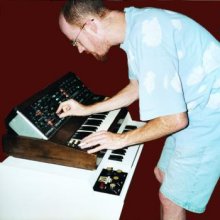 |
Anyway, Beebe's keyboard list (this time round) is:
I find it hard to tell which of the three polys he's using at any given time, although the other three 'boards are, of course, easy to spot. Not quite as much Mellotron as you might expect, to be honest, but it would be so easy just to drench the album in the thing that I really quite admire their restraint. The only 'solo' part occurs just before the thirty-minute mark, with stand-alone strings, including a bit of a playing glitch, proving it's real, on the remote offchance you might not believe them (see pic).
It took the band (now a quartet) eight years to follow their debut with 2009's Diablo. Although still all-instrumental (hurrah!), in direct contrast to its predecessor, it consists of fifteen mostly short tracks, many enhanced by the Opabinia String Quartet, despite which, Beebe plays more Mellotron than before. Compositionally, we get the same brain-wrangling twists and turns, offbeat chordal combinations and harmonic complexity as on Prometheus, all a shade heavier this time round? On the Mellotron front, we get strings and choir on Comedown Seduction, choir on Celexa, flutes and choir on Crash, choir and strings on Imbroglio II, choir on No Jesus, strings, flutes and choir (fittingly) on Old Tapes and finally, choir and strings on closer Avarice Atoned, making for a most satisfying listen, both progressively and Mellotronically. Incidentally, the gear list this time round loses the Memorymoog, but gains a set of Taurus pedals and a modular.
See: Colossus Project
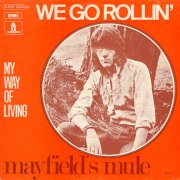 |
7" (1970) ***/½ We Go Rollin' My Way of Living |
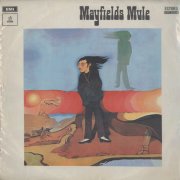 |
Mayfields Mule (1970, 41.44) ***/½Oh LadyBackyard Queen of Rock'n'Roll Down From the Country Abracadabra Here Comes the Rain Rolling Down the Highway My One for Your Two Life's Been Good to Me |
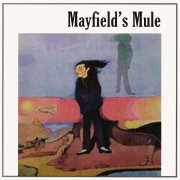 |
Mayfield's Mule (2007, recorded 1969-70, 48.22) ***/½ |
|
| Oh Lady Double Dealing Woman My Way of Living I See a River Down From the Country Drinking My Moonshine Abracadabra Here Comes the Rain |
Rolling Down the Highway My One for Your Two Life's Been Good to Me |
|
Current availability:
Mellotron used:
Chris Mayfield was a participant in the London scene of the mid-to-late '60s, playing in Nirvana, amongst others, before forming Mayfield's Mule (with or without the apostrophe) in 1968. He/they released three unsuccessful singles, one of which, We Go Rollin', features the Abbey Road 'Beatles' MkII Mellotron on its B-side, My Way Of Living. The A-side is a dull country-rocker, but the flip is a nice, Hammond-heavy blues-based track, sounding pretty typical for the time, with short bursts of strings from Pete Saunders that barely count as 'Mellotron use' at all.
For some obscure reason, now lost in the mists of time, their sole album, 1970's Mayfields Mule, was only released in Uruguay, of all places, making it a considerable rarity from the era. It's one of those albums that could've been really good had the band curbed their second-rate country rock tendencies, sturdy, Hammond-driven material such as opener Oh Lady and epics Here Comes The Rain and My One For Your Two sabotaged by dull country rockers (Backyard, Down From The Country), rock'n'roll pastiches (Queen Of Rock'n'Roll) and third-rate boogie (Rolling Down The Highway). Saying that, at least half of its length is worth hearing, but it's a bit of a curate's egg, in all honesty. Saunders adds more of that MkII to My One For Your Two, but so briefly and near-inaudibly that this barely even earns half a T.
Thirty-seven years later, those nice people at Night Wings resurrected the album, getting Mayfield to write some informative sleevenotes. What they don't say is that the tracklisting differs substantially from the original, its weakest tracks (Backyard and Queen Of Rock'n'Roll) replaced by four single-only efforts, including My Way Of Living. Despite the weakness of some of the material, I'm rather surprised that the label didn't insist on releasing 'the complete Mayfields Mule', but the one track missing from both versions (We Go Rollin') really isn't worth hearing. The end result is a slightly better album, though not really enough to gain it an extra half star, while, despite containing both the band's Mellotron tracks, the use is so minimal that a full T just isn't an option.
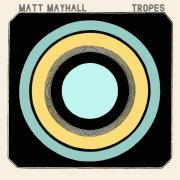 |
Tropes (2016, 34.07) ***/TOn the CeilingDum Dum Removed A Pact of Forgetting Maybe Younger Picture Day A&A Includer Myopic |
Current availability:
Mellotron used:
Matt Mayhall is an LA-based jazz drummer, although his sessions cover more musical ground than that might lead you to expect, not least Aimee Mann/The Both and Dar Williams. 2016's all-instrumental Tropes is his debut release as bandleader, once again, a less genre-specific album than you might expect, possibly at its best on Picture Day and Includer, probably (ahem) because they're the proggiest things here.
Mayhall plays what I presume is producer Paul Bryan's M4000 Mellotron (chances are he met Bryan through Aimee Mann), with nicely upfront vibes and cellos on A Pact Of Forgetting; shame he didn't use it a bit more, but he's no doubt aware of the instrument's capacity to overwhelm a mix when used to excess, as is its owner. Not really a Mellotron Album, then, but a good contemporary jazz release.
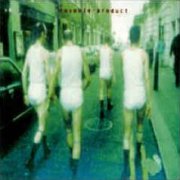 |
Product (1997, 38.02) ***/T |
|
| Going Dutch Concrete Shoes Drag the Lake Not Concerned Model T Clearence Sale (6 Years) Home Free My Window |
Don't Recall Call it Pride Return to Sender |
|
Current availability:
Chamberlin used:
Maypole were formed by Tobi Miller, ex-Wallflowers, releasing their sole album, the cynically- (or ironically-) named Product, in 1997. I suppose you'd put it at the (more) raucous end of alt.rock; powerful, tuneful, yet absolutely not powerpop, at its best on Concrete Shoes and My Window.
Patrick Warren plays Mellotron, with a watery string part on Call It Pride. While some of this is a little too 'in yer face' for my liking, the overall impression was 'very listenable', which is more than you can say for, well, almost all recorded music, probably.
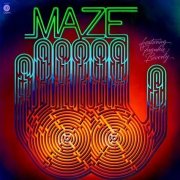 |
Maze Featuring Frankie Beverly (1977, 42.29) ***/TTTTime is on My SideHappy Feelin's Color Blind Lady of Magic While I'm Alone You Look at California |
Current availability:
Mellotron used:
Protégés of Marvin Gaye, Raw Soul were formed by vocalist/songwriter Frankie Beverly as far back as 1970, only releasing a handful of singles. They became Maze in 1976, releasing their debut, Maze Featuring Frankie Beverly, a year later. It's a polished soul/funk album, including several jammed-out tracks, as funk bands were wont to do at the time, in keeping with that '70s ethos, I suppose. Most of the material's a little too slick for Planet Mellotron's tastes, although opener Time Is On My Side is a solid piece of mid-'70s funk and the second half of closer Look At California reminds me of Santana, percussion and all.
Mellotron on several tracks, probably from keyboard player Sam Porter, with orchestral-ish string parts on major hit Happy Feelin's and the lengthy You, with flutes and strings on Lady Of Magic and Look At California. So; perfectly respectable soul/funk, smooth as silk and utterly unsuitable for my typical reader, whoever s/he may be (whom am I kidding? He). A surprising amount of Mellotron, though, with well-played and arranged parts in a pseudo-orchestral kind of way.
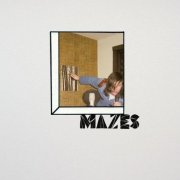 |
Mazes (2009, 32.16) **/T |
|
| Manual Systems Cat State Comity I Have Laid in the Darkness of Doubt Things I Threw in the Well Love to Lay Gas's Blacklight Village News From Day One Face Down on Forest Roads |
Heather on Heather Song for Helen Song for Luke |
|
Current availability:
Mellotron used:
Mazes are a side-project of the better-known 1900s, sitting firmly in the 'waif-like indie' mould, going by their self-titled 2009 debut. A Stereolab influence makes itself apparent on several tracks, which isn't exactly the best way to this particular reviewer's heart, but probably will/has resulted in healthy sales. Best track? Has to be Gas's Blacklight Village, a brief instrumental that takes the band's sound in a relatively interesting direction; shame there isn't more like this here.
Tim Sandusky plays Mellotron, with a real-sounding strings solo towards the end of Heather On Heather, but other possible sightings seem to be chimaeras. Sadly, I can't honestly recommend Mazes, however well-meaning it may be, twenty seconds of Mellotron notwithstanding.
See: The 1900s
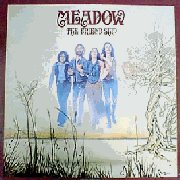 |
The Friend Ship (1973, 38.54) **/½ |
|
| In the Beginning: When You Were Young The Illusion: Vanity Fair The Game: See How They Run The Street: Lawless Lady The Question: Completely The Dream: Artist The Road: Cane and Able The Celebration: Sweet Life |
In the End: Everything I've Known The Word: There's Only One Thing to Remember In the Beginning: Home Free (The Friend Ship) |
|
Current availability:
Mellotron (Chamberlin?) used:
The obscure Meadow are remembered these days, if at all, for being Laura Branigan's (1952-2004) first band (she was a mere sixteen at the time), although she was apparently most reluctant to talk about her involvement with them in later years. Their sole album, 1973's The Friend Ship, is a rather Christian, faux-folky effort, lead vocals shared between Branigan and Chris Van Cleave, only the occasional mock-baroque touch livening things up at all. Best tracks? I'm not sure it really has any, although the rather silly The Illusion: Vanity Fair at least caught my attention.
An unknown musician plays Mellotron (or Chamberlin?) strings on The Dream: Artist and what might just be distant flutes on closer In The Beginning: Home Free (The Friend Ship), quite distinct from the real ones used elsewhere, although, with the Chamberlin (if such it is), who knows? You're really not going to go through the effort of tracking this down for either the music or the tape-replay, anyway.
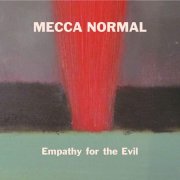 |
Empathy for the Evil (2014, 47.58) ***/½Art Was the Great LevelerWhat's Your Name? Wasn't Said Between Livermore and Tracy Normal One Man's Anger Naked and Ticklish Maisy's Death Odele's Bath |
Current availability:
Mellotron used:
Vancouverites Jean Smith and David Lester formed Mecca Normal back in 1984, making an unusual, drum-free form of indie, clearly a precursor to the '90s lo-fi movement. Their (perhaps appropriately) thirteenth album, 2014's Empathy for the Evil's best moments are in the lyric department, rather than musical, notably the barbed Normal, Naked And Ticklish and closer Odele's Bath.
Producer and North American indie legend Kramer plays (presumably) his M400 on the ten-minute Between Livermore And Tracy, with a distant string line towards the end of the track. I'd be lying if I were to tell you that this is an easy listen, but the duo's approach has its own bleak beauty.
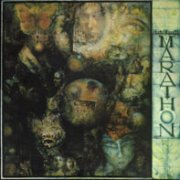 |
Marathon (1971, 37.22) ***½/T½ |
|
| I Got No Money Ragathon (part 1) Set on the Street Can't Make it Without You Got Together Trip, Trip Toodle Marstrand Juana, Juana |
Some Reason Marathon Ragathon (part 2) |
|
Current availability:
Mellotron used:
One of Sweden's first psych bands, Mecki Bodemark's Mecki Mark Men supported Hendrix (who apparently loved them) in their own country, before undertaking a mammoth US tour which ended in chaos. 1971's Marathon was their third album and the last made by the original band, before their metamorphosis into avant-proggers Kebnekaise. It's a wild, jamming psych trip of a record, starting badly with the trippy blues of I Got No Money, before heading off into the stratosphere with the likes of the flute-driven Ragathon (Part 1) or the organ-heavy Can't Make It Without You, although top marks (ho ho) have to go to the fab Got Together and Some Reason.
Bodemark plays Mellotron, with strings on Trip, Trip Toodle and Some Reason, machine unknown: a MkII? It's a bit early for an M400, but I suppose one could've found its way across the Baltic by then. Maybe it's the same one used on Made in Sweden's Made in England? Or was that album really made in England? Whatever. Anyway, this is a fine album of its type, with a couple of decent Mellotron tracks, should you be into that jamming psych thing.
John Medeski (US) see: |
 |
Medeski, Martin & Wood (US) see: |
 |
 |
download (2021, recorded 1975, 15.31) ***½/T Orison |
Current availability:
Mellotron used:
Leslie Medford is one of many, many musical bit-players (hey, it wasn't a dig - so am I!), who's known for his membership of San Franciscan psych revivalists The Ophelias during the second half of the '80s. He now has a Bandcamp page, on which he's uploaded all kinds of stuff, including a fifteen-minute prog epic, Orison, from as far back as 1975, which appears to be his earliest recording. To be brutally honest, it was never going to take the world by storm, even if its production values had been any higher than 'murky demo' (not to mention the clunky upright piano used throughout), although he has some interesting ideas, which is kind of what you'd hope for from a progressive piece.
Medford plays someone's Mellotron on the recording, with a flute melody, followed by chordal strings and cellos, around the seven-minute mark, although that is, basically, that. You can, of course, hear this for free, as in nada, so if you like the sound of it, do so.
 |
You Got Me (Moving) (2011, 43.44) **/T |
|
| You Take the Weight How Would You Do it Sooner or Later I Know What You Did I'm Not Giving Up Say the Word The Woman I Used to Love Excuse My French |
Gone Too Far Like a Runaway No Right Way to Say Goodbye A Well Known Refrain |
|
Current availability:
Chamberlin used:
Mehdi "Medi" Parisot, based in Nice, seems to be something of an all-rounder, being a singer, multi-instrumentalist, writer and producer. His 2010 debut, You Got Me (Moving), sadly, is a dog of a record, cheesy, cheery singer-songwriter pop, upbeat to the point of extreme irritation, possibly at its least bad on Excuse My French, which at least has the benefit of being vaguely witty.
Patrick Warren on uncredited Chamberlin, with distant flutes on I Know What You Did and I'm Not Giving Up (even more uncredited) and volume-pedalled strings on Gone Too Far. Enough to make this worth hearing? Even slightly? You must be joking.
 |
 |
Mirabilis (2005, 58.38) ****/T |
|
| Star of the Sea Trovommi Amor Temptasyon San'c Fuy Belha Ni Prezada All for Love of One The Lament Musa Venit Carmine Kilmeny Lhiannan Shee |
Umlahi Cittern Segue Return of the Birds Tam Lin Scarborough Fayre Come My Sweet Märk Hur Vår Skugga This World Fareth as a Fantasye Away |
||
Current availability:
Mellotron used:
The Mediæval Bæbes, helmed by Katherine Blake, coalesced from the last lineup of Miranda Sex Garden, who gigged in the '90s with Cardiacs, amongst others. Following on from MSG's semi-medieval schtick, the Bæbes have gone the whole hog and sing nothing but madrigals and other early music, using both traditional and non-traditional instrumentation. Group numbers vary wildly, from six to twelve, eight in the case of 2005's Mirabilis. Singing in many languages, both living and 'dead', the ensemble, if you'll excuse the raft of clichés I'm about to land on you, spin a web of voices, harps, hand-drums, violins and all manner of non-standard instrumentation, creating music that gets into the classical charts. I mean, even my uncle likes them. They do all this whilst remaining more than acceptable to anyone who appreciates the more uncommon things in life, which hopefully includes you lot out there.
Then-member Cylindra Sapphire plays Mellotron on Lhiannan Shee, with string and flute parts enhancing the song nicely, although, sadly, that seems to be it on the Mellotron front. This really is a lovely album, far better than most attempts at recreating the sound of medieval England (no, not you, Circulus) and far more accessible than most 'serious' early music ensembles. Not much Mellotron, but more than worthy of your purchasing power. Do it.
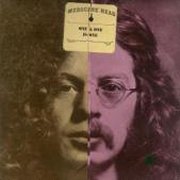 |
One & One is One (1973, 36.05) ***/TOut on the StreetHow Does it Feel Instant Karma Kid Another Lay Blue Suede Shoes - To Train Time One & One is One Morning Light I Know Why All the Fallen Teenangels |
Current availability:
Mellotron used:
Medicine Head are probably best remembered these days, if at all, for being the first band to release an album called Dark Side of the Moon, a whole year before the, er, 'better known' one. They were an odd little band; a duo of vocalists John Fiddler, who played drums and guitar simultaneously (!) live and Peter Hope-Evans, who played harmonica and other mouth implements. They were exactly the kind of outfit that appealed to the much-missed John Peel, whose status as 'champion of the underdog' led him to sign them to his fledgling Dandelion label, named for a pet hamster of the same name. Peel released their first three albums, the final one being the aforementioned, before they moved to Polydor for another three records before splitting in 1977, Fiddler going on to front the rather dull British Lions, including members of the recently-defunct Mott (the Hoople).
One & One is One was their fourth album and first for Polydor. So; whassit sound like? I hear you cry. Well... Try to imagine a pub-rock band playing vaguely folk-rock material, infused with the ramshackle spirit of early rock'n'roll and you might be getting close. I don't know if it sounds anything like their other albums, but I wouldn't be surprised. I can't say it's a sound that's dated especially well, to be honest, although going by the live track at the end of side one, Blue Suede Shoes - To Train Time, they were a lot of fun in a hot, sweaty club.
Tony Ashton, of just about everyone, not least Ashton, Gardner & Dyke and, briefly, Family, augments the duo here on various keyboards, including a very nice Mellotron strings part on what could be the album's best track, closer All The Fallen Teenangels, although that's your lot, sadly. So; you're unlikely to buy this for its Mellotron content, but students of arcane early-'70s British rock (are there such things?) may wish to hear this to see what people were listening to at the time when they wandered off the musical beaten track. Fiddler is still playing to this day and still has hair (albeit white) halfway down his back, resurrecting the Medicine Head name every now and again, although I've no idea whether he still plays guitar sat behind a bass drum. We can only hope so.
 |
Largo (2002, 65.26) ****/T |
|
| When it Rains You're Vibing Me Dusty Mcnugget Dropjes Paranoid Android Franklin Avenue Sabbath Dear Prudence |
Free Willy Alvarado Wave/Mother Nature's Son I Do |
|
Current availability:
Chamberlin used:
Brad Mehldau leads a jazz piano trio, but that's where the similarity to a thousand other players end. Not completely, admittedly, as Mehldau has tackled standards, notably on his early albums in the '90s, before he started writing most of his own repertoire, but his methodology is unusual, as is his habit of covering rock and pop artists in his own style, nor least his version of Soundgarden's ubiquitous Black Hole Sun. Largo is his ninth album in six years, eschewing standards for his own compositions and a few well-known covers, notably Radiohead's Paranoid Android, quickly recognisable, despite its unfamiliar setting. He also tackles two Beatles songs, an only slightly jazzed-up take on Dear Prudence and a vibraphone-led Mother Nature's Son. Of his own material, Free Willy features an excellent little percussive synth part, while Sabbath is probably the most impressive, mostly because its heavy synth riff sounds slightly like, er, Sabbath...
Jon Brion turns up and does his usual Chamberlin thing, with a high-end string part on Mehldau's segue of Antonio Carlos Jobim's Wave and Mother Nature's Son; at least it's actually audible, which makes a nice change. If this is the face of modern jazz piano, I have no problem with it whatsoever; sadly, most practitioners are far more conservative than this, ghettoising their music for an ageing audience. By no means all of you will like Largo, but it's an impressive piece of work, with one reasonable Chamberlin track.
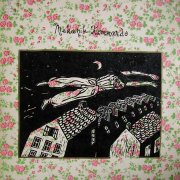 |
Shadow of a Rose (1986, 38.33) ***/½ |
|
| River of Singers The Blue Western Sea Shadow of a Rose Where the Wolf Sleeps A Picnic in the Castlegarden Scars Run Rintintin Run Wings of the Dragon |
First Snow First Reprise |
|
Current availability:
Mellotron used:
Mekanik Kommando (where did they get that name?) were a Dutch avant- outfit in the '80s, when that kind of stuff was even more marginal than it is now (hard to believe, but true). 1986's Shadow of a Rose was their fourth full album, its follow-up, The Castle of Fair Welcome, being quickly reissued under their new name, The Use of Ashes, making this the last exclusively Mekanik Kommando release. It mixes elements of folk, Velvets-inspired 'new wave', psych, even prog in places, not to mention a reasonable helping of weirdness, although it's less 'odd' than their reputation led me to believe.
Mainmen Simon and Peter van Vliet both play the band's own M400, with distant choirs on Wings Of The Dragon, although I can't quite believe it took both of them to play the part. This is available as disc one of the three-LP The Rosebud Years, credited to both Mekanik Kommando and The Use of Ashes, although I've no idea whether the duo are planning to release it on CD at any point.
See: Use of Ashes | Narwal
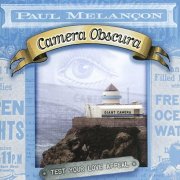 |
Camera Obscura (2002, 45.49) ***½/T |
|
| Overture King Sham Sherman Now Wait for Last Year Entr'acte Jeff Lynne Hey, California Little Plum |
Hitchcock Blonde Finé You're So Good to Me |
|
Current availability:
Mellotron used:
Paul Melançon is yet another well-kept powerpop secret, his music not 'indie' enough for those for whom badly-played sub-Velvets material appears to be the height of sophistication. 2002's Camera Obscura is his second solo release, supposedly a concept album concerning a fictitious amusement park in California, although it isn't immediately apparent on an initial listen. What is obvious is Melançon's impeccable raft of influences and his way with a tune, top tracks including Overture (guess what: it isn't), King Sham, ELO pastiche Jeff Lynne and the great Hitchcock Blonde, all sitting alongside more unusual efforts such as the jazzy Entr'acte and the '30s-esque Little Plum, not to mention the 'hidden' Beach Boys cover You're So Good To Me.
Melançon and Rob Gal play Mellotron, with skronky strings on King Sham and background ones on Finé, although only the former really convince. The world of powerpop seems to encompass any number of highly talented individuals, all hoping to capture lightning in a bottle and achieve fame through songwriting. Sadly, it would appear that route to stardom is long out of fashion, which shouldn't stop you from buying this fine album.
See: Samples etc.
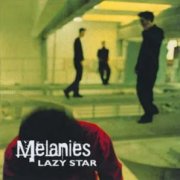 |
Lazy Star (2000, 40.18) **½/T |
|
| Everybody's Wrong Lidocaine & Aspirins They Don't Know Kill the Maniac Wizzkid Perfect Swoon We're Doomed |
No Other Way Juggernaut |
|
Current availability:
Mellotron used:
Silkeborg's Melanie's Breast, upon moving to Aarhus, did the sensible thing and became Melanies. Their sole (?) album, 2000's Lazy Star, sits at the noisier end of the indie spectrum, sounding, twenty years on, very much of its time, in a post-post-Nirvana kind of way, at its least dull on surprisingly restrained opener Everybody's Wrong and They Don't Know.
Dizzy Mizz Lizzy's Tim Christensen plays one of his M400s on a couple of tracks, with melodic string and cello parts on Everybody's Wrong and cellos on the sparse Kill The Maniac. I hate to be down on struggling bands (no, really), but this thoroughly unoriginal effort never really stood a chance. One semi-worthwhile Mellotron track.
See: Tim Christensen
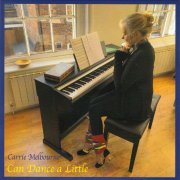 |
Can Dance a Little (2021, 47.49) ***½/T |
|
| More Than a Friend Clear Blue Arbella Crazy for You Lockdown Only Ever You One Man Good and True Tell Me it Isn't You |
Star Sigueme River Stronger Now Good as New |
|
Current availability:
Mellotron used:
Carrie Melbourne had a brief-yet-stellar career in the second half of the '90s, swiftly leaping from bassist for one-hit-wonders Babylon Zoo to touring the States with Tricky in the Lollapalooza travelling freakshow, graduating to playing bass and Chapman Stick for Mike Oldfield, before bowing out at his Millennium Eve gig in Berlin. Some twenty years on, her first solo release, Can Dance a Little (I'm sure you recognise the quote), is, effectively, a singer-songwriter album, highlighting Carrie's beautiful voice, obvious influences including Joni Mitchell (alongside a raft of other '70s female artists) and pre-psych-era supper-club jazz, notably on Crazy For You and Sigueme, but subliminally apparent on most tracks. Particular highlights include Clear Blue, the beautiful Arbella, River and the Gallic influence apparent on closer Good As New, but you won't hear a single dip in quality across the album's thirteen tracks.
Carrie's husband Doug was a linchpin of early Genesis tribute ReGenesis, so it's no great surprise that various alumni turn up here, Doug playing all non-piano keys, arranging and producing, drummer Jamie Fisher doing his thing and Nigel Appleton (drums in ReGen, guitar here) and vocalist Tony Patterson also guesting. Mellotron? Two quick caveats: 1) It isn't a '1960s Mellotron', it's a 1970s one and 2) the credits make it look like I play it. I don't. Doug came over one Saturday morning (suitably distanced; this was in the midst of the 2020 pandemic) and took under an hour to record his parts for the two relevant tracks, with chordal choirs and strings on Arbella and a brief flute solo on River. Can Dance a Little is a beautiful, understated album, little like any of Carrie's previous work and more than worthy of your time.
See: ReGenesis
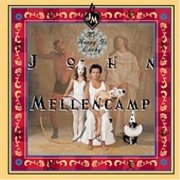 |
Mr. Happy Go Lucky (1996, 47.42) ***/T |
|
| Overture Jerry Key West Intermezzo (I Saw You First) Just Another Day This May Not Be the End of the World Emotional Love Mr. Bellows The Full Catastrophe |
Circling Around the Moon Large World Turning Jackamo Road Life is Hard |
|
Current availability:
Mellotron used:
It took John Mellencamp a decade to work his way from Johnny Cougar, through John Cougar and John Cougar Mellencamp to arrive at his real name, always claiming that 'Cougar' was landed on him by his manager, the legendary Tony DeFries (David Bowie). After his early-'80s burst of Springsteen-ish hits such as Jack And Diane, Mellencamp rapidly moved in a rootsier direction, particularly on 1985's seminal Scarecrow, unwittingly helping to invent what eventually became known as Americana a decade later. Mr. Happy Go Lucky, his fourteenth album, is allegedly more 'dance orientated', but simply sounds like a roots-rock album to yours truly, albeit one with a pretty modern sound for the mid-'90s. Good songs all round, but something about it can't compete with the likes of Wilco or, say, Beachwood Sparks.
Despite a serious complement of tape-replay players, there seems to be very little actually on the album. Mellencamp regular Mike Wanchic plays Mellotron, while co-guitarist Andy York plays both Mellotron and Chamberlin, although the only obvious parts are what sounds like Mellotron cellos on Jerry and definite flutes on Mr. Bellows, which isn't to say there aren't more parts hiding somewhere in the mix. So; Mellencamp fans will love this, Americana fans should give it a go, everyone else should probably not bother.